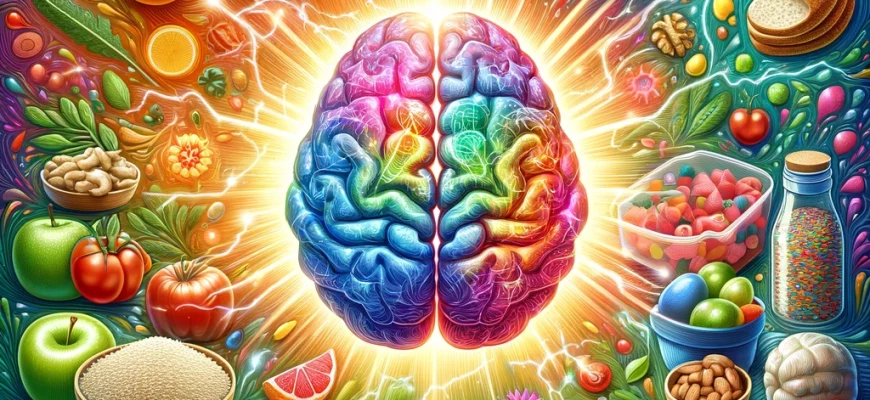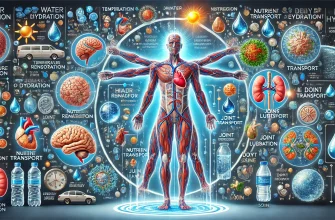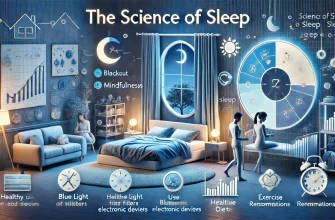In recent years, the connection between nutrition and mental health has garnered significant attention from researchers and healthcare professionals alike. While the old adage “you are what you eat” has traditionally referred to physical health, it is becoming increasingly clear that our dietary choices also play a crucial role in our mental well-being. This article explores the intricate relationship between nutrition and mental health, highlighting how specific nutrients can influence mood, cognition, and overall mental health.
The Gut-Brain Connection
One of the most fascinating discoveries in modern neuroscience and nutrition science is the gut-brain connection. The gut and brain are connected through the vagus nerve, one of the longest nerves in the body, forming what is known as the gut-brain axis. This bidirectional communication system means that not only can the brain influence gut health, but the gut can also send signals to the brain.
The gut is home to trillions of microorganisms, collectively known as the gut microbiome. These microorganisms play a vital role in digestion, immune function, and even the production of neurotransmitters such as serotonin and dopamine, which are critical for mood regulation. Approximately 90% of the body’s serotonin, often referred to as the “feel-good” neurotransmitter, is produced in the gut.
Nutrients That Influence Mental Health
- Omega-3 Fatty Acids:
- Sources: Fatty fish (such as salmon, mackerel, and sardines), flaxseeds, chia seeds, walnuts.
- Impact: Omega-3 fatty acids are essential for brain health. They are known to have anti-inflammatory properties and play a role in maintaining the structure of brain cells. Studies have shown that adequate intake of omega-3s can reduce symptoms of depression and anxiety.
- B Vitamins:
- Sources: Whole grains, leafy greens, legumes, eggs, dairy products, meat.
- Impact: B vitamins, particularly B6, B9 (folate), and B12, are crucial for brain function. They are involved in the production of neurotransmitters and help maintain healthy brain metabolism. Deficiencies in these vitamins have been linked to depression, fatigue, and poor cognitive performance.
- Vitamin D:
- Sources: Sunlight exposure, fatty fish, fortified dairy products, egg yolks.
- Impact: Vitamin D receptors are present throughout the brain, and it is believed to play a role in mood regulation. Low levels of vitamin D have been associated with an increased risk of depression and other mood disorders.
- Antioxidants:
- Sources: Berries, dark chocolate, nuts, seeds, vegetables (such as spinach and kale), green tea.
- Impact: Antioxidants help protect the brain from oxidative stress, which can damage brain cells and contribute to mental decline. Diets rich in antioxidants are linked to better cognitive function and lower rates of depression.
- Amino Acids:
- Sources: Meat, fish, dairy products, eggs, legumes, nuts, seeds.
- Impact: Amino acids are the building blocks of proteins and are essential for the production of neurotransmitters. For example, tryptophan is a precursor to serotonin, and tyrosine is a precursor to dopamine. Adequate protein intake is crucial for maintaining balanced neurotransmitter levels.
- Minerals:
- Magnesium: Found in nuts, seeds, leafy greens, and whole grains, magnesium plays a role in regulating the nervous system and can help reduce anxiety.
- Zinc: Present in meat, shellfish, legumes, and seeds, zinc is essential for brain function and has been linked to reduced symptoms of depression.
The Role of Diet in Mental Health Disorders
- Depression:
- Research indicates that diets high in processed foods, sugars, and unhealthy fats are associated with higher rates of depression. Conversely, diets rich in whole foods, lean proteins, healthy fats, and plenty of fruits and vegetables are linked to lower rates of depression. The Mediterranean diet, in particular, has been shown to have a protective effect against depression.
- Anxiety:
- Nutrient deficiencies, particularly in magnesium, vitamin D, and omega-3 fatty acids, can exacerbate anxiety symptoms. Diets that stabilize blood sugar levels through regular intake of complex carbohydrates, proteins, and healthy fats can help manage anxiety.
- Cognitive Function and Dementia:
- The MIND diet, which combines elements of the Mediterranean and DASH (Dietary Approaches to Stop Hypertension) diets, focuses on brain-healthy foods and has been shown to reduce the risk of Alzheimer’s disease and improve cognitive function in older adults.
Practical Tips for a Mental Health-Boosting Diet
- Eat a Variety of Whole Foods: Incorporate a wide range of fruits, vegetables, whole grains, lean proteins, and healthy fats into your diet to ensure you are getting a broad spectrum of nutrients.
- Limit Processed Foods and Sugars: Reduce your intake of processed foods, sugary snacks, and beverages, which can contribute to inflammation and negatively impact mood.
- Stay Hydrated: Dehydration can affect cognitive function and mood. Aim to drink plenty of water throughout the day.
- Consider Supplements: If you struggle to get enough nutrients from your diet alone, consider talking to a healthcare provider about supplements, particularly for omega-3 fatty acids, B vitamins, and vitamin D.
- Practice Mindful Eating: Pay attention to how different foods make you feel. Eating mindfully can help you make better food choices and improve your relationship with food.
Conclusion
The impact of nutrition on mental health is a burgeoning field of research that underscores the importance of a balanced diet for overall well-being. By understanding the connections between the foods we eat and our mental health, we can make more informed dietary choices that support not only our physical health but also our emotional and cognitive well-being. As the saying goes, “You are what you eat,” and in the context of mental health, this adage rings truer than ever.









